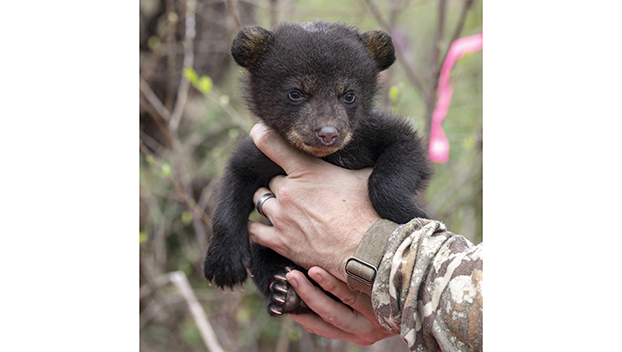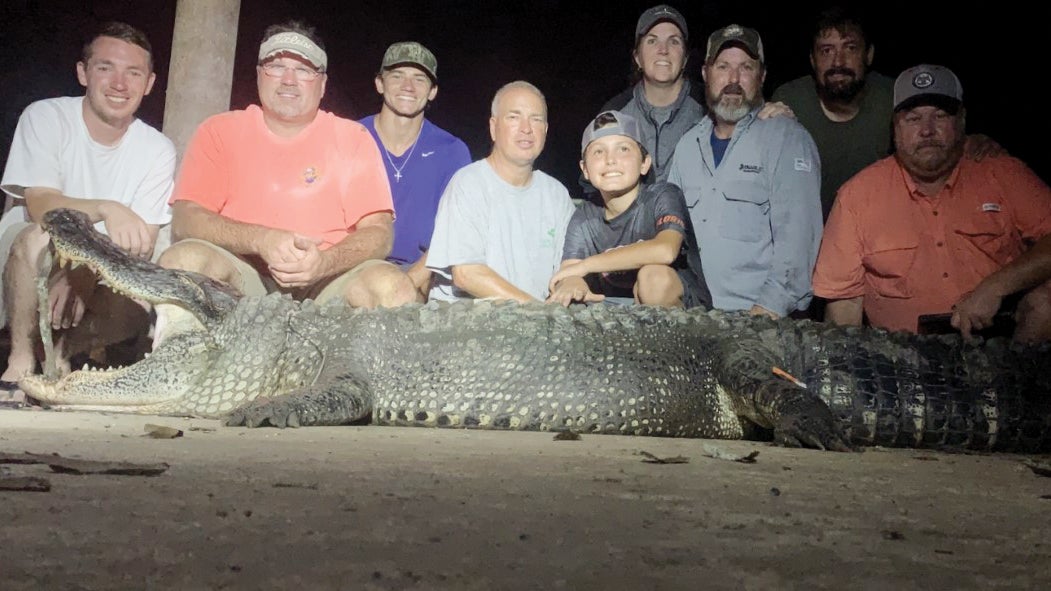Mississippi black bear program rescues abandoned cub
Published 5:24 pm Thursday, March 14, 2024

- MDWFP's Black Bear Program rescued an abandoned bear cub from the south delta and rehomed it with a mother bear, sow, in Wilkinson County last week. (Blythe Summers | MDWFP)
WOODVILLE — A female bear cub was rehomed in Wilkinson County after her mother abandoned her last week, Anthony Ballard said. He serves as the Mississippi Department of Wildlife Fisheries and Parks Bear Program Coordinator.
MDWFP’s Bear Program spends the majority of the summer trapping and collaring bears to set up den checks in early March.
“One day you are trying to set up the den checks and this is the other side of the coin,” Ballard said. “You are checking on what you worked with and you see the progression of the bear’s life. You watch her and the survival of the cubs. It is cool, I always love den check season. There is a lot more things that have to go right but I really enjoy it.”
It was thanks to a routine den check that the bear program was able to rescue the abandoned bear cub last Thursday.
Ballard said the cub was born in the south delta region of Mississippi. MDWFP conducted a routine den check and found a young female bear, called a sow, who was not expected to have cubs this year due to age and frequent movements, with a cub. Game cameras and collar location data indicated the sow had left the tree den and abandoned her cub.
At the same time, a sow in Wilkinson County who had two males and one female was being monitored as a potential match. Imminent rainstorms and concerns about trail conditions to the cub required the biologists to work quickly to take the cub and relocate it to the Wilkinson County sow.
“It’s not very often that a bear cub is abandoned. We have had to deal with it less than five times in 21 years since Mississippi has had the bear program,” Ballard said. “My thought is that the sow, a young female, had her first cub and typically if you have abandonment it is usually that first cub. It is true for any animal too. They are still trying to figure out how to raise young.”
Ballard said the cub was transported to Wilkinson County where biologists placed Vicks VapoRub on all four bear cubs and the nose of the older sow so they all smelled the same. He added the maternal instincts kick in and the bear takes care of all of the cubs.
Den check routine
Mississippi and any other state in the southeast who has a black bear program conducts den checks in the spring to keep tabs on reproductive success and trends over time. Ballard said they look to answer questions about if sows are having cubs, what the average litter of cubs is and if they look healthy.
Biologists are able to get an idea of survivorship as well by pit tagging the bears. The pit tag has a unique barcode so the bear can be identified throughout its life history. Cubs fitted with pit tags at den checks have a known date range.
During den checks, biological data is collected from the cubs. Ballard said they look at body measurements of the pads, body length and skull. MDWFP weighs the cubs and records a general overview of body condition including how the coat looks. Biologists also sex the cubs. The process takes 15 to 20 minutes.
Ballard said the den checks have been fairly normal this year with the exception of rehoming a cub. MDWFP has 22 collared bears statewide with 11 of them being females. He added the department did den checks on five of those. Only two females had cubs in those den checks.
Locating dens can be a challenge. Ballard said the GPS reception is not always great so they rely on VHF frequency transmitters to determine a smaller area of where a bear is. MDWFP biologists fly in a plane with VHF antennas to pick up on the general location of dens.
Ballard said the next step is to go and figure out the best way to approach the den. Wind direction and what equipment they might need go into the prep work for den checks. Next the sows have to be sedated for the biologists to complete the den check.
“Ideally you try to dart them and once they go under in the den we take the cubs out to collect data and then wake her up when we are finished,” Ballard said. “The sedatives we use now have a reversal drug. It is a two part injection. We give her 15 to 30 minutes and she is awake and alert.”
MDWFP plans to host Bear Week on social media in May this year to continue educating the public about the native species. Black bears have made a bounce back in Mississippi and bear sightings set a record in 2023 thanks to increased public awareness.





